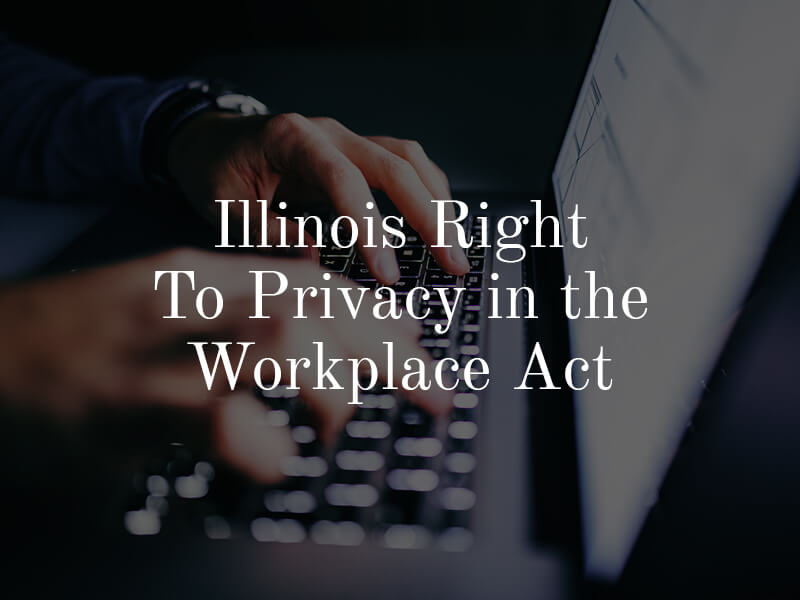Illinois’ Right to Privacy in the Workplace Act
Personal Injury,Work Injury,Workers' Compensation - March 28, 2024 by Horwitz, Horwitz & Associates
When you go to work, you should expect your privacy to be protected. However, understanding your right to privacy in the workplace can be complicated. In the U.S., the right to workplace privacy is largely left up to the state, leading to employee privacy protections that vary widely from place to place. As technology continues to improve and expand into the workplace, employee privacy is becoming more and more of a concern.
Illinois is one state that has enacted various employee privacy protections. If you are an employee or an employer in Illinois, understanding these laws is important.
Understanding the Illinois Right to Privacy in the Workplace Act (IRPWA)
The Illinois Right to Privacy in the Workplace Act (IRPWA) is in place to protected workers in Illinois. Under this Act, employers cannot discriminate against employees in the workplace for engaging in a lawful activity outside of work. This includes political activity as well as those who are prescribed and take medical marijuana.
IRPWA also prohibits employers from:
- Acquiring or requiring workers to disclose their username and passwords for personal online or social media accounts;
- Requiring an applicant to access their personal online or social media account with the employer present;
- Requiring an employee or applicant to invite their employer to join a group related to the employee’s or applicant’s personal online account;
- Requiring an employee or applicant to join or invite the employer to join any account that would allow the employer access to the employee’s or applicant’s personal online accounts;
- Discriminating against or refusing to hire an employee or applicant if they refuse an employer’s request that violated IRPWA.
IRPWA does not prohibit employers from asking about personal online accounts in all circumstances. Employers may inquire about these accounts to ensure compliance with state and federal law.
Employers are also prohibited from misusing an employee’s Social Security number (SSN). Under the law, employers cannot:
- Publicly post or display Social Security numbers
- Print Social Security numbers on an ID card;
- Require an individual to transmit their Social Security number over the internet (unless through secure or encrypted means);
- Require the use of a Social Security number to access a website;
- Print Social Security numbers on any materials that mailed to the individual (unless required by State or Federal Law).
Illinois and Employee Biometric Data
As technology changes, employers are using newer ways to identify and ease employee access in the workplace. Some employers, for example, require employees to use their fingerprints to “clock in” to work each day. While this can reduce paperwork and expedite the payroll process, it also raises many privacy concerns.
Aside from fingerprints, many employers collect workers’ retina and iris scans, voiceprints, hand scans, or facial geometry scans. If an employer does want to collect and use a workers’ biometrics, they must:
- Inform the employee in writing that they are collecting biometric information, why they are doing so, and for how long they will store the information;
- Obtain written consent from the employee before the collection of biometric data;
- Inform the employee of how they plan on destroying the information.
Companies are prohibited from selling, trading, leasing, or profiting from an employee’s biometric data. They must also use reasonable measures to protect any biometric data collected and stored. If you have concerns about your employer’s use of data and privacy related to workers’ compensation cases, contact our firm. A Chicago workers’ compensation attorney from Horwitz Horwitz & Associates can help you explore your legal options.



